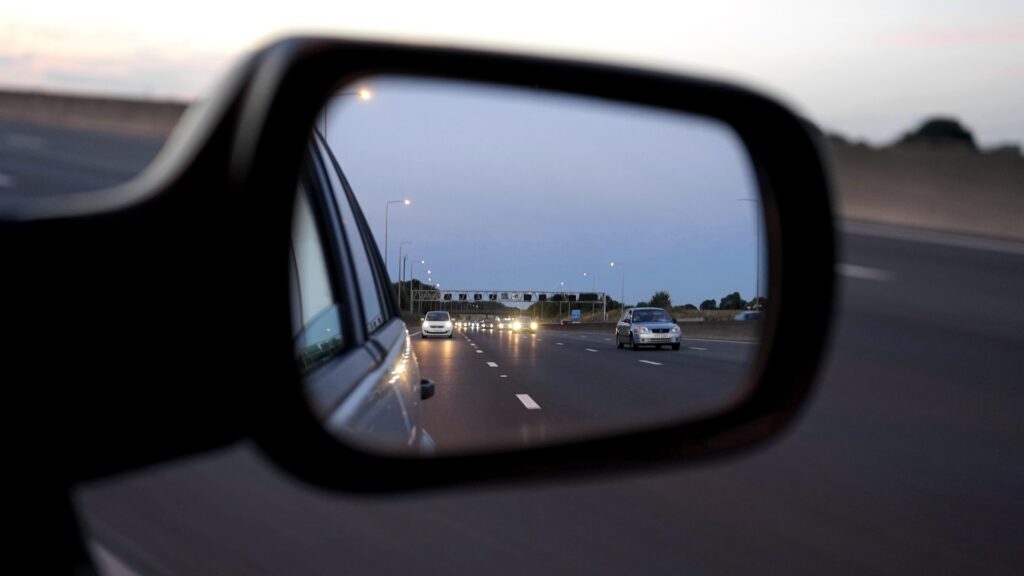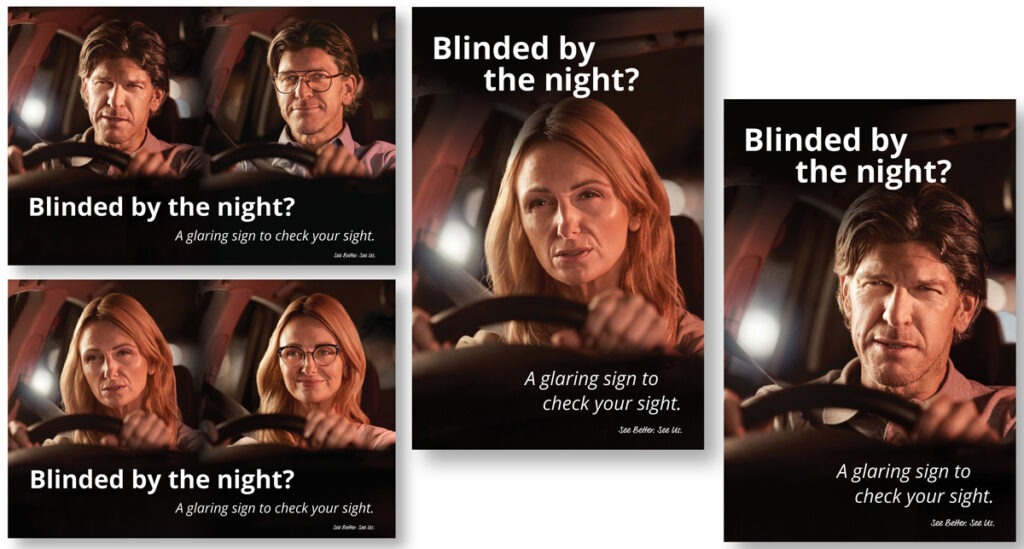How can my eyes make me a safer driver?

Research tells us that people with poor vision have a 30 percent higher crash involvement rate than those with good vision.1 This isn’t surprising, given around 90% of the decisions we make while driving is based on visual information.

At night, driving is riskier as visibility is limited and the ability to detect and respond to potential dangers is reduced. This risk is heightened for presbyopic drivers usually by the age of fifty when vision changes can result in:
- Increased light sensitivity to the glare and flare created by oncoming headlights slowing both detection and reaction time;
- Impaired depth perception when judging distances with oncoming vehicles and other objects; and
- Difficulty seeing clearly due to more pronounced refractive error resulting from the pupil dilating at night.
Many drivers are accommodating by squinting to see better (22% of Australians according to OA’s 2020 Vision Index) or moving closer or further away from the windscreen.
The Facts
-
- 1 in 5 drivers can’t see the road clearly due to uncorrected poor vision.2
- The World Health Organisation has declared poor eyesight among the main risk factors for road crashes.3
- Drivers with visual field defects have double the incidence of road crashes and traffic violations compared to drivers with a full visual field. Almost half of people with visual field loss are unaware of the problem.4
- Glare, during the day or night, is the most complained about visual discomfort by drivers and slows both detection and reaction time.5
- Night vision typically deteriorates gradually from about the age of 40.5
- 22% of Australians stated they squint to see better while driving at night 6
Do I need driving glasses?
A common distraction for drivers in the early morning and afternoon is sun glare or its technical term “disability glare”, light so bright that it prevents you from seeing your surroundings. You may experience this when sun reflects off the bonnet of your car or when bright light suddenly hits as you crest a hill making you feel temporarily blinded. To help control sun glare good quality prescription sunglasses are a must!
There are plenty of lenses avaiable to those who need the extra support when driivng at night
Driving at night or in low lighting can be particularly dangerous, as objects can fade into the darkness due to poor contrast, disrupting your vision. If you find yourself squinitng, suffering from tired eyes or even struggling to see when driving it means it is time to book in an eye exam and speak to the team at Beckenham Optometrist about your options.







